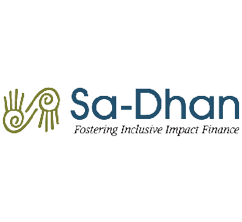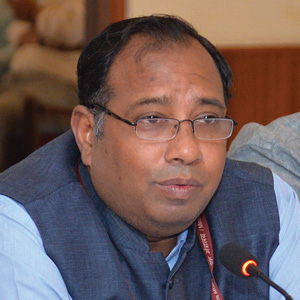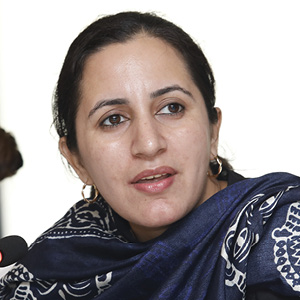
Participants at the Workshop Harmonising ESG, CSR, CDR and SDGs
HARMONISATION OF ESG, CSR, CDR, SDGs
In the ever-evolving landscape of modern business, the role of corporations is undergoing a profound transformation. Businesses are no longer solely accountable to the pursuit of profit; they are increasingly recognising their broader societal obligations. This shift reflects a growing understanding of the concept of a social contract, wherein businesses acknowledge their responsibilities to shareholders and a wider array of stakeholders, including employees, customers, communities and the environment.
Social Contract
The concept of the social contract in business has gained prominence in recent years, spurred by a confluence of factors that underscore the need for a more holistic approach to corporate governance and responsibility. One such factor is the rising expectations of stakeholders. Employees, customers, investors and communities are increasingly demanding that businesses operate ethically, transparently and with a commitment to making a positive impact on society. This heightened scrutiny has compelled businesses to re-evaluate their practices and prioritise social and environmental concerns alongside financial performance.
There is a growing interest in ESG factors with businesses, which focuses on investing, improving shareholder value and adopting ethical HR and sustainable practices. While globally, it is more about enhancing shareholder value as a key focus, in India, SEBI has incorporated India-specific challenges that need to be addressed in the guiding principles. This is incentivising businesses to adopt more socially responsible practices and align their operations with broader sustainability goals.
ESG, SDGs, CSR AND CORPORATE DIGITAL RESPONSIBILITY
With growing awareness of climate change and environmental degradation, businesses are pressured to adopt sustainable practices and mitigate their ecological footprint. From reducing carbon emissions to minimising waste and conserving natural resources, companies are recognising the imperative of environmental stewardship in pursuing long-term viability and societal well-being.
ESG criteria are a way for investors to evaluate a company’s commitment to sustainable and responsible business practices. By focusing on ESG criteria, companies are acknowledging their responsibility to consider financial returns and their impact on society and the environment.
CDR is the idea that companies are responsible for ensuring that their use of digital technologies is ethical, respectful of human rights, and considers the impact on society. This includes issues such as data privacy, cybersecurity, digital inclusion and the ethical use of AI. CDR is part of the broader concept of corporate responsibility, recognising that businesses have a role to play in ensuring that the digital transformation benefits society.
CSR initiatives can include philanthropy, volunteering, sustainable business practices, and efforts to improve the well-being of communities. CSR is one way in which businesses fulfil their social contract by contributing to society’s well-being beyond their core business activities.
The 17 SDG goals address various social, economic, and environmental challenges like poverty, inequality, climate change, and sustainable consumption. Businesses can contribute by aligning their strategies and operations with these goals, thus fulfilling their role in advancing sustainable development.
Human Rights and Digital Wellness
Businesses are increasingly expected to respect and uphold human rights in their operations and supply chains. This includes ensuring fair labour practices, preventing discrimination, and protecting the rights of workers, communities, and other stakeholders affected by their activities. The United Nations Guiding Principles on Business and Human Rights provide a framework for businesses to meet their responsibility to respect human rights.
With the rapid expansion of digital technologies, there is growing awareness of the importance of digital wellness, which refers to the impact of digital devices and platforms on the well-being of individuals. Businesses are being called upon to consider the effects of their digital products and services on users’ mental and physical health, as well as issues such as digital addiction, privacy and online safety. Digital wellness is becoming an essential aspect of corporate responsibility and a part of the broader social contract between businesses and society.
How to Harmonise Them?
Many businesses have traditionally treated ESG, CSR, human rights and digital wellness as separate focus areas. However, there is a growing awareness that these issues are interconnected and that addressing them in isolation may be ineffective. These must be integrated into a unified strategy that aligns with the company’s core values and business objectives. For example, a company’s digital products and services can have both social and environmental impacts, which need to be considered together.
Corporate Digital Responsibility (CDR)
- This refers to corporations’ ethical and accountable conduct in their digital operations and interactions. It encompasses the responsible management of data, privacy, cybersecurity and businesses’ ethical use of technology.
- CDR involves adhering to legal regulations, industry standards and ethical principles in the development, deployment, and use of digital technologies and platforms. This includes considerations such as ensuring data privacy, protecting against cyber threats, promoting digital inclusion and mitigating the negative impacts of technology on society and the environment.
- It emphasises corporations’ moral obligations and accountability in the digital sphere, recognising their influence and impact on individuals, communities, and the broader society.
Environmental, Social & Governance (ESG)
- It refers to a set of criteria that investors and other stakeholders use to evaluate a company’s performance and sustainability practices beyond traditional financial metrics.
- Environmental factors include a company’s impact on the environment, such as its carbon footprint, resource use, pollution, and commitment to sustainability initiatives like renewable energy adoption and waste management.
- Social factors encompass the company’s relationships with its employees, customers, suppliers, and communities. This includes considerations such as labour practices, diversity and inclusion, human rights, community engagement and product safety.
- Governance factors pertain to the company’s leadership, management structures and internal controls. It includes aspects like diversity, executive compensation, transparency, shareholder rights and adherence to ethical business practices and legal compliance.
- Integrating ESG considerations into decision-making processes can help drive positive social and environmental outcomes while also potentially enhancing financial performance and risk management.
Corporate Social Responsibility (CSR)
- CSR involves voluntary actions that go beyond legal obligations and aim to contribute to sustainable development and positive societal impact.
- Companies strive to minimise their environmental footprint by implementing practices such as energy efficiency, waste reduction, pollution control, and sustainable sourcing of raw materials.
- Companies address social issues and contribute to the well-being of communities through initiatives such as philanthropy, employee volunteering programs, community development projects and support for education and healthcare.
- Companies uphold high ethical standards in their dealings with customers, suppliers, employees, and other stakeholders. This includes promoting fair labour practices, respecting human rights, combating corruption, and ensuring product safety and quality.
- Companies communicate openly and transparently about their CSR activities, goals and performance, allowing stakeholders to assess their impact and hold them accountable for their commitments.
Sustainable Development Goals
- These are 17 interconnected global goals adopted by the United Nations in 2015 as part of the 2030 Agenda for Sustainable Development. The SDGs are designed to address the world’s most pressing social, economic and environmental challenges and to guide global efforts toward a more sustainable and equitable future.
- Each of the 17 SDGs addresses a specific aspect of sustainable development, including ending poverty and hunger, promoting health and well-being, ensuring quality education, achieving gender equality, ensuring clean water and sanitation, fostering sustainable cities and communities, combating climate change, conserving biodiversity and promoting peace and justice.
- The SDGs are intended to be universally applicable and inclusive, addressing the needs and priorities of all countries, regardless of their level of development.
- The SDGs are interconnected and mutually reinforcing, recognising that progress in one area often depends on progress in others.
Human Rights
- In terms of Section 2 of the Protection of Human Rights Act, 1993, India, “human rights” means the rights relating to life, liberty, equality and dignity of the individual guaranteed under the Constitution or embodied in the International Covenants and enforceable by courts in India.
- “International Covenants” means the International Covenant on Civil and Political Rights and the International Covenant on Economic, Social and Cultural Rights adopted by the General Assembly of the United Nations on the 16 December 1966.
- Human rights are fundamental rights and freedoms inherent to all individuals, regardless of nationality, ethnicity, religion, gender or any other status. They are universal, inalienable and indivisible, meaning they apply equally to every person and cannot be taken away or forfeited.
- Human rights are interconnected and interdependent, meaning that the enjoyment of one right often depends on the realisation of others. For example, the right to education is linked to the right to health and freedom of expression.
- Human rights are interrelated and complementary, meaning that progress in one area of rights often contributes to improvement in others. For example, promoting gender equality can also advance economic development and social justice.





























